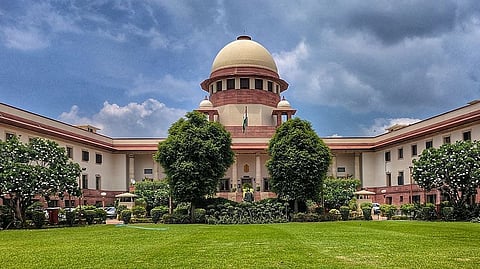
- Latest Legal News
- News
- Dealstreet
- Viewpoint
- Columns
- Interviews
- Law School
- Legal Jobs
- हिंदी
- ಕನ್ನಡ

There have often been debates on whether one organ of governance has stepped into the other's realm in violation of the doctrine of separation of powers among the three organs, recognised as part of the basic structure of India’s Constitution.
While the presence of sufficient checks and balances is ensured by the separation of powers, it is equally crucial for each branch to be independent in order to operate efficiently. There is thus a very delicate balance to achieve, an exercise that was recently put to test by the Supreme Court.
A Constitution Bench of the Supreme Court recently directed that that the Chief Election Commissioner (CEC) and Election Commissioners (ECs) be appointed by the President on the advice tendered by a committee consisting of the Prime Minister, the Leader of the Opposition (or the leader of the single largest party in opposition) and the Chief Justice of India, until Parliament enacts a law on the matter.
Amongst other points, an argument made by the Central government in this case was that the judiciary cannot overstep its bounds to make laws in violation of the separation of powers. However, the Court held that this doctrine cannot be applied rigidly, and noted that certain situations, such as the existince of a legislative gap, may warrant judicial intervention.
The Court noted that the appointments of the CEC and the ECs had been debated by the Constituent Assembly. Thereafter, Article 324(2) was incorporated in the Constitution, which requires the President of India to make the appointment subject to any law enacted by Parliament. However, no such law has been enacted till date, and the President has been making appointments based on the advice of the Council of Ministers. In effect, unbridled power was vested in the hands of the executive.
While seeing the need for judicial intervention in the matter, the Court observed that the while the Election Commission (Conditions of Service of Election Commissioners and Transaction of Business) Act, 1991 covers many crucial aspects of the Election Commission, it does not contain any provision on the appointment of CEC and ECs. It held that the appointment by the executive was to be a stop-gap arrangement until a law was passed, and the absence of such a law even after seven decades indicated a legislative vacuum.
The Court explained that while separation of powers “is meant to prevent tyranny of power flowing from the assumption of excess power in one source”, it needs to be understood that there is a difference between supplanting the legislature and supplementing it through such directions.
It is interesting to note that this is not the first time the Court has laid down such directions. The much-celebrated Vishaka guidelines on sexual harassment of working women is another example. There, the Court had held that in the absence of enacted law to provide for gender equality and guarantee against sexual harassment at work places, the guidelines were being laid down until legislation is enacted for the purpose. This was done in exercise of the power available under Article 32 of the Constitution for enforcement of fundamental rights. These guidelines served their purpose for fifteen long years until the enactment of the Sexual Harassment of Women at Workplace (Prevention, Prohibition and Redressal) Act, 2013.
The Court has time and again acknowledged that the judiciary can neither legislate nor issue a direction to the legislature to enact a law in a particular manner, and that it may be outside the purview of judicial review to do so. However, in exceptional cases where there is a vacuum in the existing legal position, the judiciary, in exercise of its constitutional powers, steps in and provides a temporary solution till the legislature comes forward to perform its role.
In the present case, observing the necessity to provide this solution in the current time given how “criminalisation of politics, with all its attendant evils, has become a nightmarish reality”, the Supreme Court in unambiguous terms has made its position clear. It will now be interesting to see how this decision sets a precedent and whether the legislature complies or legislates it away.
Mahwash Fatima is a lawyer and a public policy consultant with keen interest in the intersection of law, policy and governance.